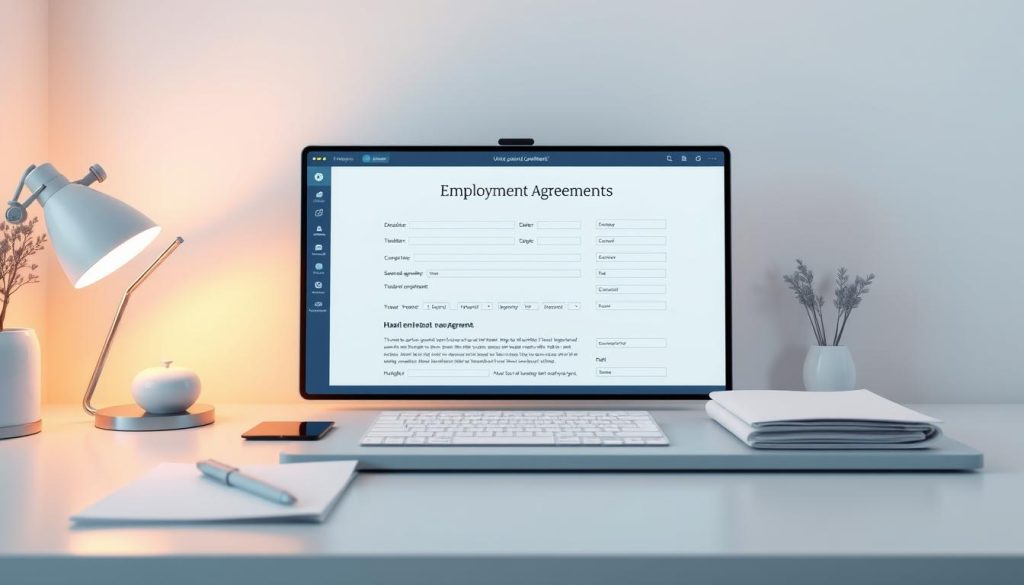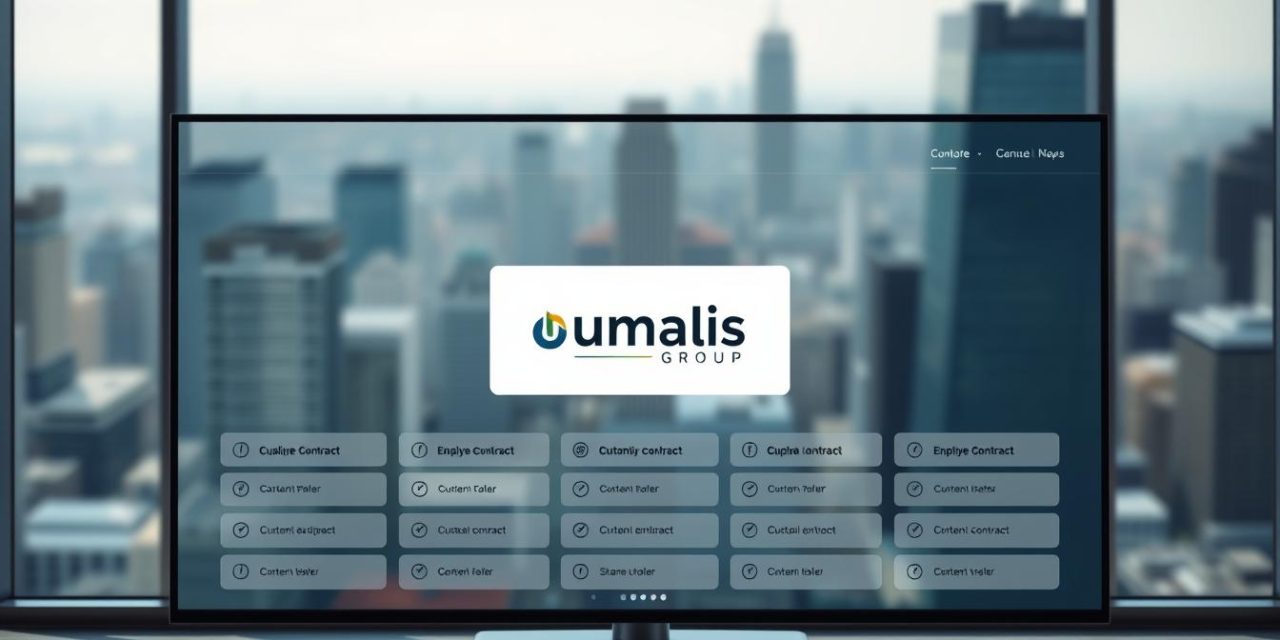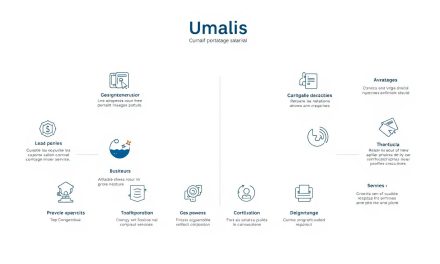Have you ever wondered how clear your financial future could feel if you had the right tools to map it out? As someone who once navigated the uncertainty of shifting careers, I understand the weight of not knowing what your next paycheck might look like. That’s where Umalis steps in—a trusted ally for professionals seeking clarity in their earnings and career paths.
Whether you’re an independent professional or exploring new roles, understanding your employment terms is crucial. Our simulator simplifies complex calculations tied to French labor codes, breaking down charges, clauses, and income projections. For example, discover Umalis Group’s income simulator to see how factors like professional expense reimbursements directly impact your net earnings.
What sets this tool apart? It’s built on legally validated data, empowering you to compare temporary and permanent agreements confidently. By clarifying obligations for both employees and employers, it transforms vague assumptions into actionable insights. Visit Umalis’ platform to explore how even small adjustments to hours or roles can reshape your financial security.
Table of Contents
Key Takeaways
- Estimate earnings accurately using French labor code-backed calculations.
- Compare temporary and permanent agreements side by side.
- Understand charges and clauses that impact your income.
- Gain confidence in career transitions with reliable data.
- Optimize financial planning through scenario-based simulations.
Introduction to French Work Contracts and Financial Planning
In France, the blueprint for professional security lies within your employment terms. Whether you’re negotiating a new role or transitioning careers, contracts define rights, responsibilities, and income stability. These agreements aren’t just formalities—they’re legally binding frameworks that protect both parties while aligning expectations.
Contracts as Pillars of Stability
French labor law prioritizes clarity through structured agreements like CDI (permanent) and CDD (fixed-term) contracts. These documents outline payment terms, termination conditions, and professional boundaries. For employees, this means predictable income streams. Employers gain safeguards against unforeseen liabilities. A well-defined employment contract transforms uncertainty into actionable plans.
Simulating Your Financial Future
Why guess your earnings when tools like Umalis’ simulator offer precision? By inputting details such as hourly rates or reimbursements, you instantly see how clauses affect net income. For instance, contract workers in France can compare freelance rates with salaried benefits—all before signing any agreement.
Understanding terms like probation periods or exclusivity clauses helps avoid costly surprises. When you know what each section means, you negotiate from strength rather than hope. Financial planning becomes strategic, not speculative.
French Employment Landscape: CDI and CDD Explained
France’s labor system balances flexibility with worker protection through two primary agreements: the CDI (permanent contract) and CDD (fixed-term contract). These frameworks shape career trajectories while safeguarding rights for both professionals and organizations.
Overview of the Permanent Contract (CDI)
The CDI is France’s default employment agreement, offering open-ended stability. Employees gain predictable income, social benefits, and legal protections against abrupt termination. Employers benefit from long-term team building while adhering to strict termination protocols under Article L1234-1 of the Labor Code.
« A CDI isn’t just a job—it’s a foundation for financial planning and professional growth. »
Key Features of the Fixed-Term Contract (CDD)
CDDs address temporary needs like seasonal demand or project-based roles. Legally capped at 18 months (including renewals), they require justification such as:
- Replacing absent staff
- Sudden production spikes
- Short-term specialized projects
| Aspect | CDI | CDD |
|---|---|---|
| Duration | Indefinite | Up to 18 months |
| Renewal | Not applicable | Limited to twice |
| Termination | Strict legal process | Ends automatically |
Understanding these distinctions helps professionals choose roles aligned with their goals. For deeper insights, explore our comprehensive guide to employment terms.
Understanding the Work Contract Simulator

Navigating the complexities of employment agreements just became simpler. Umalis’ simulator transforms legal jargon into clear financial forecasts, helping you make informed career choices without guesswork.
How the Simulator Works
Start by entering basic details like your role type (CDI or CDD), gross salary, and weekly hours. The tool cross-references this with French Labor Code standards to calculate deductions, social charges, and net income. For instance, inputting a €45,000 annual salary under a permanent contract reveals how probation periods or exclusivity clauses affect take-home pay.
Behind the scenes, algorithms factor in legal criteria like mandatory benefits and tax brackets. This ensures projections align with real-world scenarios. Whether comparing temporary roles or assessing long-term stability, the system adapts to your unique situation.
Benefits of Using a Simulator for Earnings Estimation
Clarity is power. The simulator breaks down how each clause impacts your earnings—from healthcare contributions to overtime pay. Personalized results let you:
- Visualize net income after all deductions
- Compare multiple offers side by side
- Adjust variables like contract duration or bonuses
“Accuracy stems from transparency. Our data sources include updated labor code regulations and collective bargaining agreements.” — Umalis Team
For freelancers exploring hybrid arrangements, simulate salary portage scenarios to balance flexibility with social protections. By turning abstract terms into actionable numbers, you gain control over your financial trajectory—one informed decision at a time.
Legal Framework and Key Clauses in Employment Contracts
Employment agreements in France serve as legal anchors, ensuring clarity between professionals and organizations. Governed by the French Labor Code, these documents outline mutual obligations while protecting rights. Let’s explore critical clauses that shape career trajectories and financial security.
Probationary, Mobility, and Exclusivity Clauses
Probationary periods allow employers and employees to assess fit. Under Article L1221-20, maximum durations vary:
- 6 months for executives
- 4 months for other roles
Mobility clauses define relocation expectations. For example, a sales manager might agree to regional assignments if specified upfront. Exclusivity terms prevent side projects conflicting with primary duties—common in tech or creative fields.
| Clause | Purpose | Legal Limits |
|---|---|---|
| Probationary | Evaluate compatibility | Duration caps per role |
| Mobility | Define geographic flexibility | Must specify regions |
| Exclusivity | Prevent conflicts of interest | Compensation required if restrictive |
Non-Competition and Performance Target Clauses
Non-compete agreements protect businesses but must balance fairness. The Labor Code mandates:
- Time limits (≤2 years)
- Geographic restrictions tied to actual markets
- Financial compensation (≥33% of previous salary)
Performance targets require measurable metrics, like quarterly sales goals. Ambiguous terms like « satisfactory results » risk disputes. Transparency ensures both parties align on success criteria.
« A well-structured agreement turns potential conflicts into shared roadmaps for growth. »
Understanding these clauses empowers you to negotiate terms that respect your skills while safeguarding organizational interests. Clarity today prevents costly misunderstandings tomorrow.
Exploring Fixed-Term Contracts: Purpose and Applications

In France’s dynamic job market, flexibility meets structure through targeted agreements designed for short-term needs. Fixed-term contracts (CDDs) serve as strategic tools for businesses and professionals navigating temporary demands while respecting labor protections.
Temporary Increases in Activity and Seasonal Work
CDDs shine in industries with fluctuating demands. Agriculture relies on seasonal agreements for harvest periods, like the contrat vendanges—a 1-3 month arrangement for grape picking. Tourism businesses use these agreements to staff ski resorts or coastal hotels during peak seasons.
French law caps CDD durations at 18 months, including renewals. Employers must justify their use for specific scenarios:
- Replacing absent employees (e.g., parental leave)
- Addressing temporary sales spikes (holiday retail)
- Completing short-term projects (event staffing)
| Industry | Typical Duration | Key Conditions |
|---|---|---|
| Agriculture | 3-6 months | Linked to harvest cycles |
| Tourism | 2-4 months | Peak season alignment |
| Retail | 1-3 months | Holiday demand periods |
While CDDs offer adaptability, they require careful planning. Employers cannot use them for permanent roles, and employees gain fewer long-term benefits. However, they provide immediate solutions for urgent staffing needs without compromising labor rights.
“CDDs balance organizational agility with worker protections—when used as intended by the Labor Code.”
The Work Contract: Navigating Employer and Employee Rights
French labor agreements create a structured framework where rights and responsibilities flow both ways. Employers gain clarity on performance expectations, while professionals secure protections against arbitrary decisions. This balance ensures fairness—provided both parties understand their roles under the law.
Legal Justifications and Limitations
Terminating an agreement requires valid reasons under Article L1235-3 of the Labor Code. For instance, an employer might cite repeated underperformance, but must provide documented evidence. Conversely, an employee can resign without cause during probation, but faces stricter rules afterward.
Courts often side with employees when procedures aren’t followed. A 2023 Paris Court of Appeal ruling penalized a company €12,000 for dismissing a worker without proper performance reviews. Such precedents highlight why transparency matters.
| Employer Rights | Employee Protections |
|---|---|
| Set measurable performance targets | Receive written notice for termination |
| Enforce non-compete clauses (with compensation) | Challenge unjust dismissals in labor courts |
| Adjust roles per mobility clauses | Access social security benefits |
Fixed-term contracts carry tighter restrictions. Employers can’t terminate early unless both parties agree or the worker commits gross misconduct (Article L1235-12). Employees, however, may exit if securing a permanent position elsewhere.
“Simulators like Umalis’ reveal how clauses impact your earnings and rights—before you commit.”
Understanding these dynamics helps professionals negotiate safeguards. For example, requesting a capped probation period or clearer metrics for bonuses. Tools that model different scenarios turn legal jargon into actionable insights, fostering trust through informed decisions.
Leveraging Contract Information for Better Career Decisions
What if every career choice you made was backed by data-driven clarity? Detailed contract analysis turns vague promises into measurable opportunities. By dissecting terms like remuneration structures and professional development clauses, you gain the power to align short-term roles with long-term aspirations.
Decoding Financial and Professional Value
Start by evaluating remuneration packages beyond base salary. Look for:
- Performance bonuses tied to clear metrics
- Health insurance contributions or meal vouchers
- Training budgets for skill development
For example, a €50,000 annual salary with €3,000 in professional expense reimbursements often yields higher net value than a €53,000 offer without perks. Use simulators to compare how social charges impact different structures.
| Contract Duration | Financial Impact | Career Flexibility |
|---|---|---|
| 12-month CDD | Predictable short-term income | Easier transition between industries |
| Permanent CDI | Long-term stability | Access to company retirement plans |
Working hours directly influence work-life balance. A 35-hour week with overtime compensation clauses protects personal time better than vague « flexible scheduling. » Training opportunities listed in agreements—like sponsored certifications—boost marketability for future roles.
« Negotiate from knowledge: 73% of professionals secure better terms when presenting data-backed counteroffers. »
Compare multiple offers using side-by-side breakdowns of termination conditions and growth pathways. Tools like Umalis’ simulator reveal hidden costs or benefits, turning complex terms into actionable career maps.
Practical Steps to Use the Simulator for Career Planning
Imagine having a roadmap that turns career uncertainties into clear financial forecasts. Umalis’ simulator transforms your professional history and goals into actionable insights. Let’s explore how to maximize its potential for strategic decision-making.
How to Input Data and Interpret Your Results
Begin by entering your current or proposed agreement details:
- Select your contract type (CDI, CDD, or freelance)
- Input gross salary, working hours, and location
- Add bonuses, reimbursements, or specific clauses
The system processes this against French labor standards, displaying net income, social charges, and termination conditions. For example, a €4,500 monthly CDI in Paris shows how commuting allowances increase disposable income by 6-8%.
Integrating Professional Training and Work Experience
Your career history shapes future opportunities. Include:
- Certifications listed in past fixed-term contracts
- Duration of previous roles to identify growth patterns
- Specialized skills from professional training programs
| Training Level | Salary Impact | Contract Flexibility |
|---|---|---|
| Basic Certifications | +5-7% | Limited role expansion |
| Advanced Diplomas | +12-15% | Access to managerial CDIs |
Adjust variables like working hours or project-based durations to see how upskilling affects long-term earnings. One user increased simulated income by 22% after adding a digital marketing certification to their profile.
“Regularly update your simulator inputs—career evolution demands dynamic planning.”
Review results quarterly, especially before agreement renewals or negotiations. Small tweaks today can unlock significant financial security tomorrow.
Conclusion
Empowering professionals with clarity transforms career decisions from gambles into strategic moves. Throughout this guide, we’ve explored how French employment contracts—whether CDI or CDD—shape financial stability through legally binding terms like duration, termination conditions, and mutual obligations between parties.
Umalis’ simulator bridges theory and practice by converting complex labor law into personalized insights. It evaluates how clauses impact earnings, compares agreement types, and forecasts long-term security—all backed by updated legal standards. This tool eliminates guesswork, letting you model scenarios from probation periods to bonus structures.
For those ready to act: explore the simulator or visit Umalis’ platform for tailored analyses. Understanding every detail of your contract isn’t just prudent—it’s essential for aligning career growth with financial well-being.
Take control today. Let data-driven clarity guide your next professional chapter.
FAQ
What’s the main difference between a CDI and CDD in France?
A CDI (Contrat à Durée Indéterminée) offers indefinite employment with long-term stability, while a CDD (Contrat à Durée Déterminée) is temporary, used for specific roles like seasonal projects or replacing absent employees. CDDs have fixed end dates and stricter legal limitations.
How does the simulator estimate earnings for different contract types?
The tool analyzes variables like base salary, benefits, and contract duration. It factors in industry standards, legal requirements, and tax implications to provide personalized projections for CDI, CDD, or freelance scenarios.
Are non-compete clauses enforceable in French employment agreements?
Yes, but only under strict conditions. The clause must be limited in time (≤2 years), geographic scope, and activity type. Employers must also provide financial compensation during the restriction period.
Can a probationary period be extended in a permanent contract?
Extensions are permitted only once and require written agreement from both parties. The total probation period cannot exceed legal limits—typically 2-4 months for most roles, depending on the employee’s classification.
When can employers legally use fixed-term contracts?
CDDs are allowed for temporary needs like seasonal demand spikes, covering maternity leave, or one-time projects. They cannot replace permanent roles without valid justification under France’s Code du Travail.
How do mobility clauses impact career flexibility?
These clauses let employers reassign staff to new locations or roles within predefined limits. Employees should verify the clause’s geographic range and negotiate terms before signing to avoid unexpected relocations.
What happens if a CDD ends before the agreed date?
Early termination without valid cause may require the employer to pay damages equivalent to the remaining salary. Exceptions apply for gross misconduct or mutual agreement documented in writing.
Does professional training affect earnings estimates in the simulator?
Yes. Advanced certifications or specialized skills can increase projected income by aligning with higher-paying roles. The tool adjusts calculations based on your input about qualifications and industry benchmarks.





